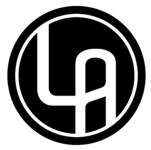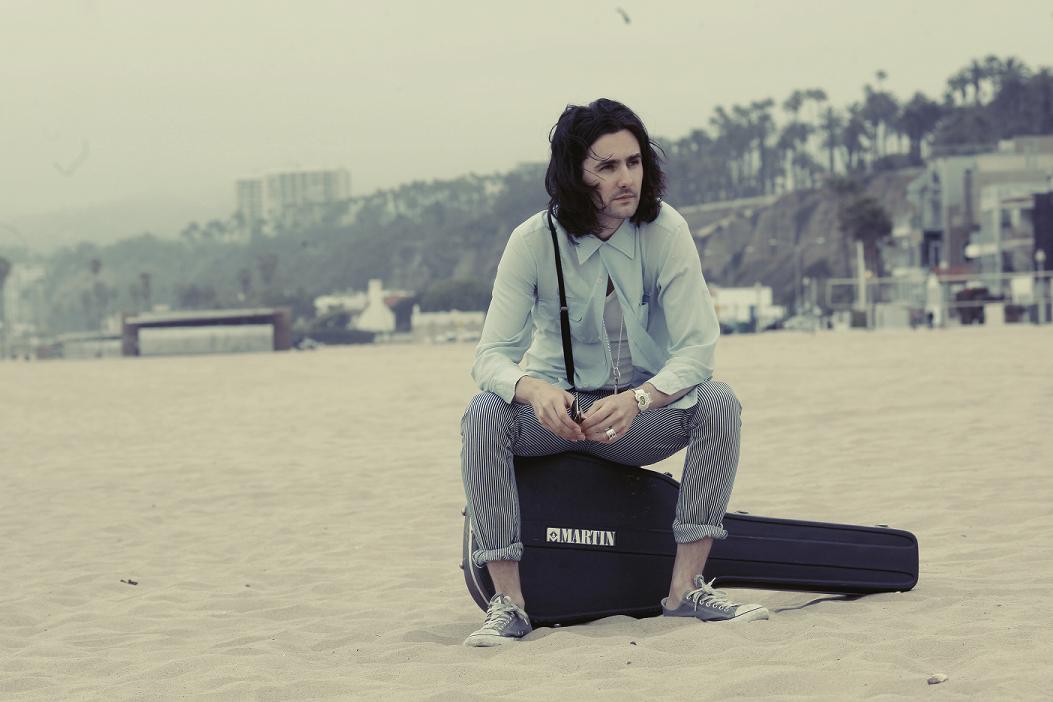Interview: Donovan Woods
There’s this notion that being a songwriter for other individuals means that chasing after a career as a performer is not an option – it’s either one or the other. But Canadian singer and songwriter, Donovan Woods, seems to have cracked the code and manages to write tunes for high-profile country artists like Tim McGraw and Lady Antebellum’s Charles Kelley while still pursuing his own solo career.
Splitting his time between Nashville and Toronto has blurred the line between songwriter and artist for him, and it’s evident with his newest release, Hard Settle, Ain’t Troubled. The Music City influence is apparent with authentic country flavors scattered throughout the record while still maintaining Woods’ signature melancholic, detailed storytelling.
In this conversation, Woods explains how capturing various moods inspires his songs, and why he doesn’t need to change his sound to find success.
Laura Antonelli (Songfacts): When you’re writing a song, what method works best for you?
Donovan Woods: It’s always different. You never really know. It’s just being open and making sure you’re not closing off any possibilities. Just allowing it to happen in whatever way it’s going to happen and figure out how it’s going to go rather than saying, “Well, this is how I write a song. I start with this and then I have to figure this out.”
The best advice for me is to just get out of the way, see what happens, and don’t expect it to be good. Just try to communicate the feeling and see how it goes, which is nice.
Songfacts: Let’s talk about your new album, Hard Settle, Ain’t Troubled. What inspired the title?
Donovan: Well, those are the names of two songs that I had written, but they weren’t any good so they didn’t make the record. I liked how those words sounded together. I felt like it was a pretty accurate description of the theme of the rest of the songs on the record, so I just decided to keep it.
I like to have titles that have never been titles before. People call their albumClose My Eyes or some bullshit. Just something that’s been used a thousand times like I Want You Back. I like to have a bunch of words that are rarely used as titles, so that’s what I’m going for usually.
Songfacts: You described “On the Nights You Stay Home” as “a rotten song about rotten people.” Can you elaborate on that and explain the story happening in it?
Donovan: [Laughs] Well, I don’t know. I don’t think there’s much. It’s just a person.
I think there’s this worry. We’ve ended absence. We are with each other all the time now because we can see through our social timelines. We can be anywhere and experience what’s happening. I’ve just been across the entire Prairies in the last two days and I know exactly what the weather’s like in Toronto. I know exactly what it looks like and exactly what’s going on because the people that I love there are telling me. It’s just playing with the idea of a couple of people being out. Maybe the narrator is a little bit resentful that somebody doesn’t want to come out with him. I don’t know. It’s just some sort of rotten churning between two people that maybe aren’t really that good for each other.
Songfacts: There’s a comment on a YouTube video of you performing “They Don’t Make Anything In That Town” saying that people in the audience started crying when you sang it at a show.
Donovan: [Jokingly] Good! They should cry their eyes out.
Songfacts: [Laughs] Why do you think that song evokes such a strong reaction and what moved you to write it?
Donovan: I don’t know. I’m interested because I thought that that song was so specific that it would be tough for people to appreciate it.
I had that idea when I was in the southern United States. There are a lot of complaints in the South about how manufacturing jobs have dried up. They are high-paying jobs. You can work in a factory and support a family off of a single income, which is rare now, and those kinds of jobs are disappearing. The idea of “They Don’t Make Anything In That Town” came from that and then I just tried to juxtapose that with scenes of when there were some little pieces of life in there. It’s three little tiny vignettes and little pieces of what it was like when people did still live there.
I guess it’s indicative of the small towns that a lot of people are from. There’s a lot of stuff dragging those towns that isn’t really vocalized or addressed, so I think that’s maybe why.
Songfacts: You seem to be channeling your own Eternal Sunshine of the Spotless Mind on “We Never Met” with trying to erase a relationship and just acting like it never happened. How did you come up with the idea for that one?
Donovan: Yeah, I always liked that as a title. I always thought it was a good, interesting title. I just tried to figure out what that would mean, pretending that you’d never met. I don’t discount that as a strategy in life: just pretending something that you didn’t like didn’t happen [laughs]. It’s a pretty good strategy sometimes to say, “I’m going to totally forget about this and just move forward. I’m just going to pretend like it didn’t even fucking happen,” because some things are just awful.
It’s probably not super healthy, but to me it would have been an interesting way to approach something like it. Working backwards from that idea, you get the rest of those verses. You get the, “Let’s say this. Let’s say this. Let’s say this.” You can still live a lie like that. You have to undo a lot of stuff, but that’s what I was trying to do in that song.
Songfacts: So it wasn’t a specific event that triggered the idea?
Donovan: No. There are certainly events in my life that I would like to completely and totally forget about like everybody, but it’s not a specific thing. It’s just that mood. The mood of feeling like, Well, how am I going to get over this? I was trying to communicate that mood for sure.
Songfacts: Why did you name your song “May 21, 2012,” and can you explain the tale occurring in it?
Donovan: It was the name of the voice memo the day that I recorded the song [laughs]. I was away touring around England. It was a bit of pieces of things that had happened to me and pieces of things from a story that I’d read. It was just a date that happened to be on the voice memo so it stayed as the title of the song. I just felt like I couldn’t think of anything better. It seemed to make sense to me.
Songfacts: “Leaving Nashville” depicts the harsh realities of trying to make it as a songwriter in the Music City. Can you just describe what your own experience has been like there and what motivated you to write it?
Donovan: Well, my experience there has been mostly positive. It’s mostly just been fun things happening to me. I certainly did throw up in parking lots, though.
It was an idea that I had and brought to my buddy, Abe [Stoklasa]. I thought that he might want to write it. It took me a long time to convince him that it was a good idea.
Have you ever been to Times Square?
Songfacts: Yup.
Donovan: You know how Times Square, there’s something about it that’s totally revolting. It’s just consumerism at its complete and total right there, but at the same time, there’s something electric and alive and super compelling about it. You feel like, Wow, I’m happy to be here, even though it’s a nightmare [laughs].
I think that there are a lot of those places in America. Toronto is like that to some people in Canada. A place like Las Vegas or a place like Los Angeles and certainly Nashville – those places where you’re drawn to them because there’s that weird hope that you could make something out of yourself and become something really wonderful because there’s so much opportunity in them, but, at the same time, you’re repulsed by it. I was trying to communicate that feeling of dichotomy in a place like that where it’s obvious you love it. I’m never leaving, but it’s really nothing but heartache.
So that was the idea and you can’t ever talk about things that are that big. So to talk about a big idea like that, you have to use little tiny things like getting a call from an old friend to hint at those big huge ideas. I always find the best way to do it is to use little tiny, tiny, tiny things that are as small as possible.
Songfacts: “Leaving Nashville” is not really a typical country song, so were you at all surprised that Charles Kelley from Lady Antebellum recorded it for his debut solo album?
Donovan: I think everybody else was, but I was not surprised. Abe knows Charles. We know Charles so we were able to send it right to him and we know the type of music Charles likes.
Some people would probably be surprised that he recorded a song that sad. I know our publisher thought it was too sad or too inside to work in mainstream country, and we disagreed. We thought somebody would do it because it describes the mood of that town so accurately.
Charles is cool as hell and loves good songs that he’s willing to do. That whole album for him is a big risk. He’s got a comfortable gig, so for him to put himself out there like that is cool. And for him to do songs that are dire on them is pretty rad. He’s a rad dude.
Songfacts: Your first major label cut was with Tim McGraw who recorded your song, “Portland, Maine.” Where did the idea come from for that one and did you ever think when you were writing it that the residents of Portland, Maine would have such a bad reaction to it?
Donovan: Well, I made that up when I had to get an American cell phone. I was getting all these calls for the person who used to own the cell phone. It was this woman named Jonessa. Her life was a master at getting collection phone calls. Most of the calls were coming from Portland, Maine. I couldn’t remember if it was the West Coast one [Oregon] or the East Coast one because there are two Portlands. I just thought of the line that way. I just thought it was a funny thing to say and normally I’m just looking for things that are original that haven’t been said before. I thought it was an interesting way to get an idea of wanting to end the long-distance relationship, so Abe and I just wrote from that point.
And, no, when we wrote it, I thought I would keep it and record it. I thought that it was too weird of a song for any mainstream country artist to record, and certainly not somebody like Tim McGraw. I was very surprised by that one.
It hadn’t occurred to me that people will probably be upset until his record was about to come out. There were a bunch of people on Twitter going, “Oh my God! There’s a song called ‘Portland, Maine’ on Tim McGraw’s new record! It’s going to be about how great the town is and how nice it is here! I hope he really treats it well! I know he likes it here!” I thought, “Oh, God. These people are going to be really disappointed,” and then they certainly were. Everybody was mad, but whatever. It doesn’t have anything to do with me.
Songfacts: [Laughs] You only wrote it.
Donovan: [Laughs] I’ve never been to Portland. I guess they have an identity crisis there. They’re worried that people don’t actually know where they are and it’s mostly their own trauma showing rather than having anything to do with the song. If they listen to the song, it really doesn’t have anything to do with Portland at all. It’s just a place that sits in the syllabic meter of the song.
Songfacts: What do you remember about writing “Put On, Cologne” from Don’t Get Too Grand?
Donovan: I don’t remember much of what it’s about because I wrote it so long ago. I wrote it even before I recorded The Widowmaker, which was the record before it. I always thought it was catchy and fun, but I didn’t think it was any good. I eventually whipped it back out.
We recorded a little demo for Don’t Get Too Grand and I didn’t think it was really anything. I thought it was just this catchy little thing, but eventually once we recorded the demo, they thought it was really good. We never recorded another version – we just put the demo right on the record.
It was talking about a friend of mine who had been in Europe and was having girlfriend problems. I can’t remember exactly what was going on with him, but I was taking things from his emails back home. I certainly didn’t think it would garner as much attention because of it. I really had no idea. I just thought it was kind of stupid, to be honest with you [laughs].
Songfacts: You thought the song was stupid?
Donovan: I just thought it was a silly sentiment to say “stupid European boyfriend” four times over and over again in that song.
Songfacts: And what do you remember about “Brand New Gun” from The Hold Up?
Donovan: Oh, yeah. Well, I’m talking about taking a train from Toronto to New York, which I used to do a lot because I was dating someone who lives in New York who was a teacher there. When you take the train from Toronto to New York, first of all, it takes so long and you almost go crazy every single time. And then the border is intense, so I’m talking about crossing the border on a train. I don’t know why I’m talking about a brand new gun. Probably something that has to do with border control in America. I don’t remember. I really like that song, but it’s a weird one.
Songfacts: Do you ever get protective of certain songs and want to keep them for yourself instead of allowing other artists to record them?
Donovan: No, I try not to care about that as much as I can. My goal is not to be precious about stuff and just let it all happen however it happens. I know people that are guarded about their songs and they’ll be like, “I want to have that one! That’s a hit, I know it!” I just feel like you never know, and once you get possessive about your songs then maybe it all dries up and you can’t do it anymore. I think if you’re open and try to just be like, “Whatever. Give it away. Move onto the next one,” then hopefully they keep coming, so that’s all I’m trying to do.
Songfacts: You said in an interview that you tend to write from a character’s point of view and then realize after that you were actually just writing about your own life. Can you think of specific songs when that has happened?
Donovan: You won’t get me to admit to that [laughs]. Yeah, I mean, that happens in all the songs, but not necessarily that I’m writing about the specific instances that take place in the song. You’re always writing about a mood that you’ve experienced. You might not know what that feeling is until months afterwards when you look back and listen to the song again. Sometimes it’s not easy to figure out what it’s about so you never really know. It always becomes things that are about you and things that aren’t. By and large, I’m talking about things that I’ve experienced, but never really specific things.
Songfacts: When I saw you open for Hawksley Workman in Whitby, Ontario back in November, you kept joking about the depressiveness and sadness that most of your songs entail. So what do you think is the happiest song you’ve ever written?
Songfacts: [Laughs] I don’t know. [Long pause] Not on this record. [Pause]
Jeez, I don’t know. I think maybe on my first record there’s a song called “My Cousin Has A Grey Cup Ring,” which is kind of a little ditty. I think that’s probably about as happy as it gets for me. I don’t think things are really that happy [laughs]. I don’t know what everyone’s so happy about all the time.
Songfacts: Which is funny because that song’s not really a happy song [laughs].
Donovan: It’s about rotten jealousy. You’re right, but whatever. That’s as happy as it gets with me.
Songfacts: Hard Settle, Ain’t Troubled is your fourth album. So out of your whole discography, what song do you wish more people paid attention to?
Donovan: Hmmm. That’s a good question. [Long pause] There’s a song on Don’t Get Too Grand called “You Don’t Say” that I really like. When we were making it, I thought people would really like it, but it was literally the least-selling song on the record and it’s the least-streamed song on it as well [laughs]. It’s literally the least successful song that I’ve recorded. I remember while I was making it, I was like, “Oh, people are really going to like this,” so probably that one. I always felt like it was really good, but I was wrong. I was obviously very wrong.
Songfacts: How do you find the balance between being a songwriter and creating music for yourself?
Donovan: It eventually all becomes one thing. At the beginning, it seems like a thing that you have to think about all the time: Who am I writing for here? What’s going on? It eventually becomes obvious.
And there are the songwriters that you work with on your own stuff. Abe and I, the guy I wrote “Portland, Maine” and “Leaving Nashville” with, when he and I write, we could be writing for anybody. It doesn’t matter. We’re just trying to write a good song. You eventually whittle your co-writes down into people like that and then the line blurs a little bit. You don’t have to think about yourself as songwriter versus an artist. I think that’s the best way to go about it.
The first song on the new record, “What Kind Of Love Is That?,” I wrote with a Nashville songwriter guy. He’s a classic songwriter guy who I just respect and think is so good. He’s a guy named Tom Douglas. I didn’t think that in a million years we’d write something that I would want to do because I thought that he’s just such a country songwriter. I was surprised when I got the song off the ground and played it a couple of times. I thought, “I’m keeping this,” so you never know. I think the best way to go about it is just to walk in saying, “I’m here to write the best thing that I can possibly write regardless of where it’s going to end up.”
Songfacts: Do you prefer doing co-writes or just writing on your own?
Donovan: I prefer doing co-writes now just because I’m old and I need an appointment to things [laughs]. I rarely find time to write on my own anymore because I’m much busier now so it’s just advantageous in that way for sure.
Songfacts: When you were first trying to get into the Nashville songwriting machine, what was the toughest challenge you encountered?
Donovan: I was really lucky because through connections I got to skip a level and started writing with people that were pretty big right off the bat. I was lucky.
What I do is pretty sad and dire. I think the hardest thing is just trying to realize and remember that I don’t have to change what I do that much. What I write is country music. It’s folk music. There are classic country songs that are all based around folk principles. I don’t have to be scouring the radio listening to something that’s on it to find some sort of success. I just do what I do and that’s going to somehow fit. It was the most important lesson that I learned for sure.





No Comment